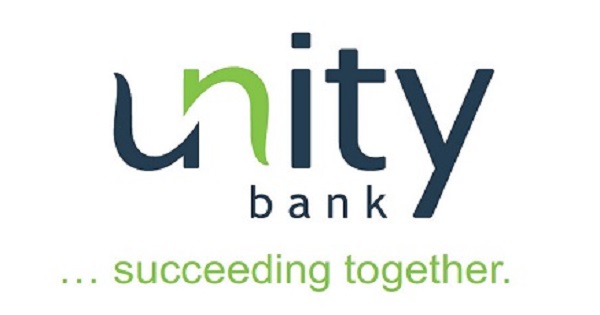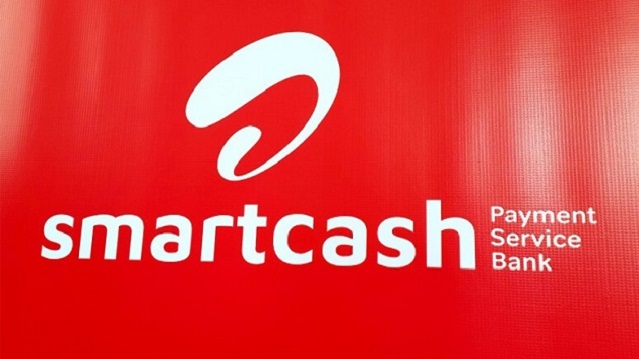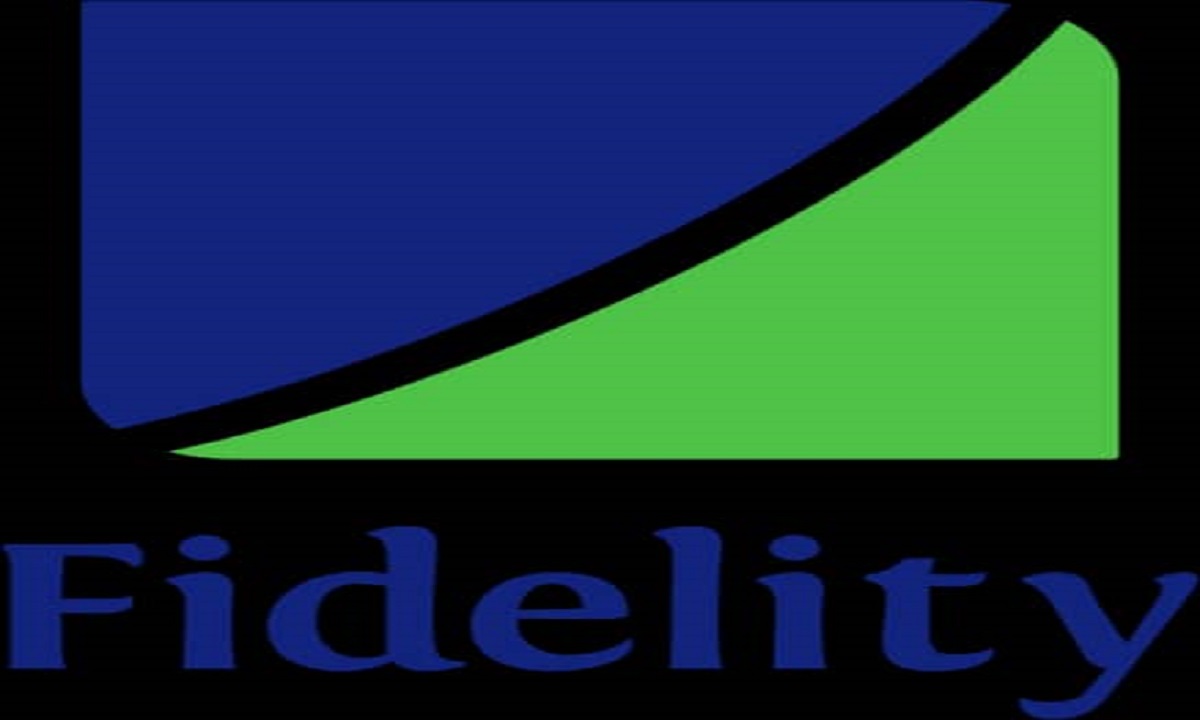E-Financial
Unity Bank Posts N36.18B Gross Earnings in Nine Months; Records 23% Growth in Profit

Unity Bank Plc has declared gross earnings of N36.18Billion for the nine-month period ended September 30, 2021, and a 23% growth of PAT totalling N1.94Billion for the same period.

A review of the unaudited results for the 3rd Quarter of 2021 released to the Nigerian Exchange Group Limited showed that the Bank’s gross earnings of N36.18Billion represents a moderate 7% growth from N33.9 Billion recorded in the same period in 2020.
Also, with the strong performance recorded during the period under review buoyed by a 31% growth in its loan book to N265.32Billion from N202.08Billion recorded in 2020, the lender also grew its asset base by 17% to N574.56Billion from N492.02Billion recorded in December 2020.
The Bank’s Profit Before Tax for the period under review grew by 23% to N2.11Billion from N1.71Billion in the corresponding period in 2020.
This sterling performance comes amid fragile recovery and volatilities in the operating environment and key macroeconomic indicators following the global Covid-19 pandemic, weak market sentiments and inflationary trends, as well as tough regulatory headwinds that have impacted severely on economic activities.
The lender also substantially grew its net interest income to N14.63Billion from N12.67Billion in the same period in 2020; creating a 15% uptick from the value of the Bank’s rising loan portfolio and an improvement in its transaction banking activities with its customers, achieved through excellent service delivery.
The lender’s fees and commissions averaged 16% to report an increase of N4.56Billion from N3.92Billion within the period under review, attributable to a dividend of the Bank’s strategic retail play which has boosted transaction volume.
Commenting on the result, Mrs. Tomi Somefun, Managing Director/CEO, Unity Bank, expressed satisfaction with the performance indices of the Q3/2021 financials. Particularly inspiring are the growing loan book and quality of assets (31% growth), cash and balances with the CBN (24% growth) and PBT (23% growth), altogether adding to the consecutive growth of the balance sheet in the last couple of years.
In her overall assessment, she stated that “the market is increasingly beginning to see the efforts in the strategic refocussing of our business and diversification of our earnings base which is translating into tangible results even as we strive to meet the expectations of our esteemed customers and cherished stakeholders.
“In addition, she said that while the Bank’s focus on agribusiness has provided both brand and business benefits while the institution has also made significant investment in the development of the retail market in order to grow its market share in various target segments by scaling up operations in the niche market.”
Somefun also stated that the Bank shall remain dynamic by embracing current and emerging market trends in technology, effectively targeting the youth market, driving financial inclusion in the women segment, developing robust product marketing to create value through a focus on digital strategies to facilitate transaction and e-banking channels.
Looking ahead, Mrs. Somefun stated: “We are optimistic that nothing will threaten to upend the current COVID-19 recovery, especially as the Bank is poised towards building an increased momentum to ride the wave of the economic headwinds, even as the growing inflationary pressures and the soaring energy prices still remain a concern.
According to the Unity Bank’s boss, “Ours is a continuous balancing act and revolutionary performance towards repositioning the business nationwide via tapping into emerging opportunities across the banking space, including the digital financial services spheres”.
Analysts believe that the consistent growth trajectory in the Bank’s balance sheet as shown in Q1, H1 and Q3, 2021 results continue to reinforce growing market confidence as well as demonstrates the commitment and drive of the management to enhance shareholder’s value.
E-Financial
Smartcash PSB Launches Access to Instant Motor Insurance via Leadway Assurance

In continuation of its mission to make financial services simpler, faster, and more accessible, SmartCash Payment Service Bank, a subsidiary of Airtel Nigeria, has announced a strategic partnership with Leadway Assurance to offer Smartcash users an effortless access to Leadway’s mobile-friendly motor insurance service.

Starting from ₦15,000, this new offering provides a convenient and affordable way for motorists to stay protected and compliant with national insurance requirements. With this collaboration, new and existing Smartcash customers can now acquire or renew two types of Leadway Assurance motor insurance: the Third-Party Insurance and AutoBase Comprehensive Insurance, directly on the Smartcash app or by dialling *939#.
While the third-party motor insurance plan offers the legally required minimum cover, protecting motorists from liability for damages or injuries caused to others, the AutoBase Comprehensive Insurance plan extends that protection to cover the user’s own vehicle in the event of accidents.
Commenting on this partnership, Chief Executive Officer, Smartcash PSB, Tunde Kuponiyi highlighted the importance of the collaboration in driving convenient and inclusive insurance access for Nigerians.
“At Smartcash, our goal has always been to bring inclusive financial solutions closer to everyday Nigerians. By partnering with Leadway Assurance, we’re making it easier for motorists to insure their vehicles without stress or delays. It’s insurance that moves at your speed,” he said.
He also noted that Smartcash users can complete the entire purchase process in under three minutes, from plan selection to payment with no physical paperwork or documentation required. Customers receive instant confirmation and their digital policy documents via email, making insurance more accessible than ever.
Also speaking on the partnership, Kike Fischer, Director, Sales, Retail and Partnership, Leadway Assurance, added: “At Leadway, innovation and exceptional service are at the core of our mission to deepen insurance penetration and inclusion.
“This collaboration with SmartCash enables us to deliver real-time protection to more Nigerians via a trusted, everyday platform. It marks a bold step in transforming how insurance is accessed and experienced across the country.”
The insurance integrated service is also fully inclusive, as it works across all types of mobile phones. Users without smartphones or internet access can access the same features via USSD, ensuring nationwide reach, especially in rural and underserved areas.
This partnership reinforces Smartcash’s commitment to delivering digital-first financial services that meet the real-world needs of Nigerians. By simplifying access to essential products like motor insurance, Smartcash continues to empower users with tools that protect, support, and uplift their daily lives.
E-Financial
Fidelity Bank Refutes ₦5 Billion Bail Payment Claim, Labels Report “False”

Fidelity Bank has dismissed allegations that its Managing Director, Nneka Onyeali-Ikpe, paid ₦5 billion to evade police detention amid an ongoing fraud investigation.

The bank described the report, published by Sahara Reporters, as “malicious” and aimed at misleading the public.
The controversy arose from a recorded conversation in which Onyeali-Ikpe allegedly referenced ₦5 billion in connection with her bail.
However, Fidelity Bank clarified that the amount referenced was a bail bond signed on self-recognizance—not a direct payment to the police.
Authorities later withdrew fraud charges against Onyeali-Ikpe, with the Attorney General of the Federation citing justice, fairness, and lack of evidence implicating her in the matter.
Fidelity Bank emphasized its commitment to strong corporate governance and adherence to ethical standards.
E-Financial
CBN Suspends Dividend, Bonus Payments for Banks under Forbearance

Central Bank of Nigeria (CBN) has suspended dividend payments to shareholders and bonuses to directors and senior management staff of banks currently benefiting from regulatory forbearance.

Forbearance refers to the temporary reduction or postponement of payments, such as for loans or mortgages, usually introduced to give temporary relief to individuals, and corporations, including financial institutions encumbered by financial straits.
The directive was contained in a circular dated June 13, signed by Olubukola Akinwunmi, director of Banking Supervision, CBN.
According to the CBN, the move is part of efforts to strengthen capital buffers, enhance balance sheet resilience and promote prudent internal capital retention within the banking sector during what it described as a transitional period.
The regulatory forbearance arrangement, which allows banks some relief in meeting credit exposure and Single Obligor Limit (SOL) requirements, is currently being reviewed by the central bank in terms of capital positions and provisioning adequacy.
As part of this review, the CBN directed affected banks to suspend dividend payments, defer bonuses, and refrain from making investments in foreign subsidiaries or launching new offshore ventures.
“This temporary suspension is until such a time as the regulatory forbearance is fully exited and the banks’ capital adequacy and provisioning levels are independently verified to be fully compliant with prevailing standards,” the CBN said.
The bank added that the measure is to ensure that internal resources are retained to meet existing and future obligations and support “the orderly restoration of sound prudential positions.”
The CBN also said it will continue to monitor developments and engage with institutions as necessary.
The move comes amid efforts to tighten supervision across the financial system following recent banking sector reforms and recapitalisation directives.

 E-Financial1 day ago
E-Financial1 day agoFidelity Bank ED, Kevin Ugwuoke takes over as President of Risk Managers Association

 Telecom1 day ago
Telecom1 day agoCrypto Exchange MEXC Rolls Out P2P Support for Naira, Birr, and Rupee

 News1 day ago
News1 day agoWhy I am vying for AFRINIC board seat in 2025 election – Terry Edet

 General News1 day ago
General News1 day agoAirtel Concludes Nationwide Environment Week with Market Clean-Up by Employees

 General News1 day ago
General News1 day agoCourt Orders Lawyer to Produce “Bail-Jumping” Client in MTN Cyber Fraud Case

 News1 day ago
News1 day agoElumelu, UBA Chair Seeks Digital Sovereignty for Africa

 E-Financial1 day ago
E-Financial1 day agoCBN Suspends Dividend, Bonus Payments for Banks under Forbearance

 Broadcasting1 day ago
Broadcasting1 day agoMultichoice Nigeria Faces Revenue Decline Amid Economic Challenges


























